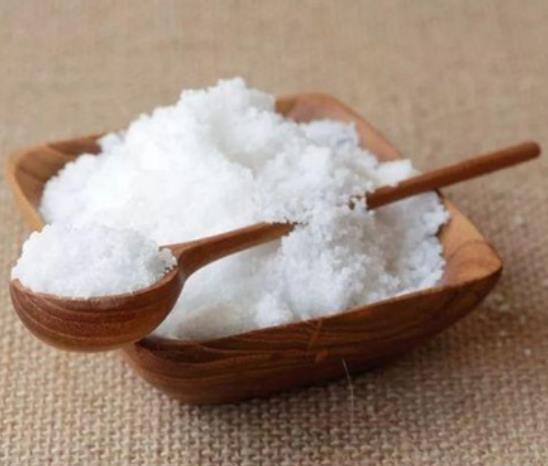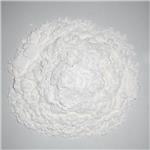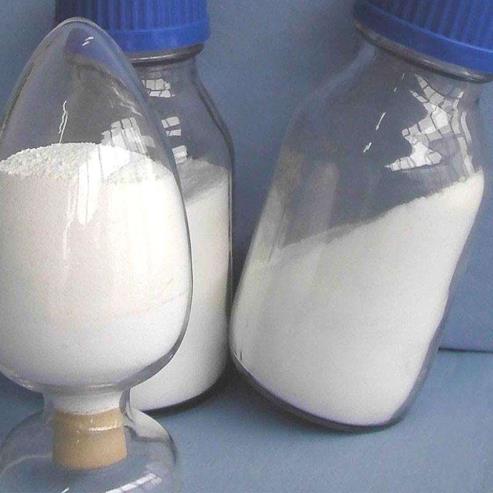Dyclonine Hydrochloride: An Essential Local Anesthetic in Modern Medicine
Oct 23,2024
Dyclonine Hydrochloride, an unclassified compound with local anesthetic effect. Dyclonine reversibly binds to activated sodium channels on the neuronal membrane, thereby decreasing the neuronal membrane's permeability to sodium ions, leading to an increased threshold for excitation. This reversibly stabilizes the membrane and inhibits depolarization, leading to the failure of a propagated action potential and subsequent conduction blockade. This results in a transient and reversible loss of sensation in a localized area of the body.

Figure 1 Characteristics of Dyclonine hydrochloride
Pharmacodynamics
Dyclonine Hydrochloride is an oral anasthetic. If substantial quantities of local anesthetics are absorbed through the mucosa, actions on the central nervous system (CNS) may cause CNS stimulation and/or CNS depression. Actions on the cardiovascular system may cause depression of cardiac conduction and excitability and, with some of these agents, peripheral vasodilation.
Mechanism of action
Local anesthetics block both the initiation and conduction of nerve impulses by decreasing the neuronal membrane's permeability to sodium ions. This reversibly stabilizes the membrane and inhibits depolarization, resulting in the failure of a propagated action potential and subsequent conduction blockade.
Side effects of Dyclonine Hydrochloride
The most common side effects of Dyclonine Hydrochloride are listed below. Tell your healthcare provider if you have any of these side effects that bother you.
Dizziness
Dry mouth
Blurred vision
Nausea
Sleepiness
Feeling unusually weak or tired
Nervousness
There may be other side effects of Dyclonine Hydrochloride that are not listed here. Contact your healthcare provider if you think you are having a side effect of a medicine.
- Related articles
- Related Qustion
- The uses and Pharmacokinetics of Dyclonine hydrochloride Sep 24, 2019
Dyclonine hydrochloride is the hydrochloride salt of Dyclonine. Dyclonine belongs to a kind of oral anaesthetic. It is contained in the “Sucrets” as well as some kinds of Cepacol sore throat spray as an active ingredient. Dyclonine takes ef
Supplementation with pyridoxal 5'-phosphate monohydrate can synthesize neurotransmitters such as dopamine and serotonin, maintaining a healthy nervous system.....
Nov 4,2025Biochemical EngineeringTerephthaldicarboxaldehyde, is an aromatic dialdehyde with significant importance in the field of organic synthesis.....
Oct 22,2024Organic ChemistryDyclonine hydrochloride
536-43-6You may like
- Rolapitant Synthesis
Dec 22, 2025
- Synthesis of 2-(2-Chlorophenyl)cyclohexanone
Dec 22, 2025
- Preparation methods and application of 2-(2-Ethoxyethoxy)ethyl acrylate
Dec 22, 2025
Dyclonine hydrochloride manufacturers
- Dyclonine hydrochloride
-

- $0.00 / 1KG
- 2025-12-22
- CAS:536-43-6
- Min. Order: 1KG
- Purity: 50%
- Supply Ability: 100kgs/month
- Dyclonine hydrochloride
-

- $0.00 / 1kg
- 2025-12-19
- CAS:536-43-6
- Min. Order: 1kg
- Purity: 99%
- Supply Ability: 500
- Dyclonine hydrochloride
-

- $0.00 / 1kg
- 2025-12-19
- CAS:536-43-6
- Min. Order: 1kg
- Purity: 98%
- Supply Ability: 1000






